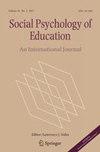教师自主学习的评估:连结专业能力、评估实践与判断准确性
IF 3.2
2区 心理学
Q1 PSYCHOLOGY, EDUCATIONAL
引用次数: 0
摘要
自我调节学习(Self-regulated learning, SRL)是成功终身学习的关键,也是重要的教育目标。为了培养学生的SRL技能,他们需要教师在课堂上给予适当的SRL支持。教师了解学生在语言学习中的优势和劣势,可以更有适应性地促进语言学习。这就要求教师准确地评估学生的SRL技能。然而,关于教师在外语教学中的诊断能力的研究却很少。为了弥补这一研究空白,本探索性研究调查了教师关于SRL的内容知识、评估活动以及判断学生SRL的准确性。此外,本研究还考察了教师在SRL中的特点和能力是否与他们判断的准确性有关。研究对象为41名初中教师和他们的173名学生。学生们完成了一些SRL技能的元认知知识测试,教师对这些SRL技能的元认知知识进行了预测。结果表明,并非所有教师都熟悉SRL的评估。此外,教师对SRL的离线评估比在线评估更熟悉,而且值得注意的是,教师采用了非SRL诊断的评估活动。学生的实际测试成绩与教师判断的相关性较低,普遍表明教师在评估学生对各种SRL技能的元认知知识时准确性较低。教师的特征和能力与判断正确率主要不相关。总的来说,这些结果强调需要进一步关注和支持教师发展他们在SRL中的诊断能力。本文章由计算机程序翻译,如有差异,请以英文原文为准。
Teachers’ assessment of self-regulated learning: Linking professional competences, assessment practices, and judgment accuracy
Abstract Self-regulated learning (SRL) is crucial for successful lifelong learning and an important educational goal. For students to develop SRL skills, they need appropriate SRL support from teachers in the classroom. Teachers, who are aware of their students’ strengths and weaknesses in SRL, can promote SRL more adaptively. This requires teachers to assess students’ SRL skills accurately. However, there is little research on teachers’ diagnostic competences in SRL. To address this research gap, the present exploratory study investigates teachers’ content knowledge about SRL, assessment activities, and accuracy in judging their students’ SRL. Furthermore, the study examines whether teachers’ characteristics and competences in SRL are associated with the accuracy of their judgments. The study included 41 lower secondary school teachers and their 173 students. The students completed metacognitive knowledge tests on several SRL skills while the teachers made predictions about the students’ metacognitive knowledge of those SRL skills. The results indicate that not all teachers were familiar with the assessment of SRL. Moreover, teachers exhibited greater familiarity with offline assessments of SRL than online assessments and a noteworthy proportion of teachers employed assessment activities that were not diagnostic of SRL. Low correlations between students’ actual test scores and teachers’ judgments generally revealed low accuracy for teachers in assessing their students’ metacognitive knowledge of various SRL skills. Teachers’ characteristics and competences in SRL were mainly uncorrelated with their judgment accuracy. Overall, these results highlight the need for further attention and support for teachers in developing their diagnostic competences in SRL.
求助全文
通过发布文献求助,成功后即可免费获取论文全文。
去求助
来源期刊

Social Psychology of Education
PSYCHOLOGY, EDUCATIONAL-
CiteScore
5.40
自引率
3.40%
发文量
59
期刊介绍:
The field of social psychology spans the boundary between the disciplines of psychology and sociology and has traditionally been associated with empirical research. Many studies of human behaviour in education are conducted by persons who identify with social psychology or whose work falls into the social psychological ambit. Several textbooks have been published and a variety of courses are being offered on the `social psychology of education'', but no journal has hitherto appeared to cover the field. Social Psychology of Education fills this gap, covering a wide variety of content concerns, theoretical interests and research methods, among which are: Content concerns: classroom instruction decision making in education educational innovation concerns for gender, race, ethnicity and social class knowledge creation, transmission and effects leadership in schools and school systems long-term effects of instructional processes micropolitics of schools student cultures and interactions teacher recruitment and careers teacher- student relations Theoretical interests: achievement motivation attitude theory attribution theory conflict management and the learning of pro-social behaviour cultural and social capital discourse analysis group dynamics role theory social exchange theory social transition social learning theory status attainment symbolic interaction the study of organisations Research methods: comparative research experiments formal observations historical studies literature reviews panel studies qualitative methods sample surveys For social psychologists with a special interest in educational matters, educational researchers with a social psychological approach.
 求助内容:
求助内容: 应助结果提醒方式:
应助结果提醒方式:


